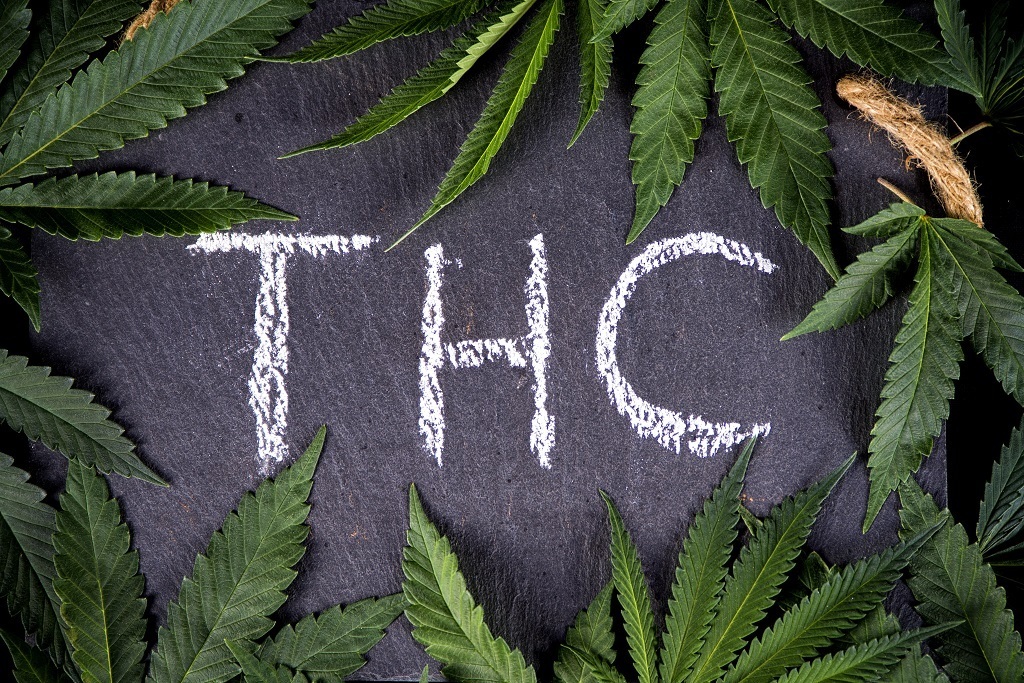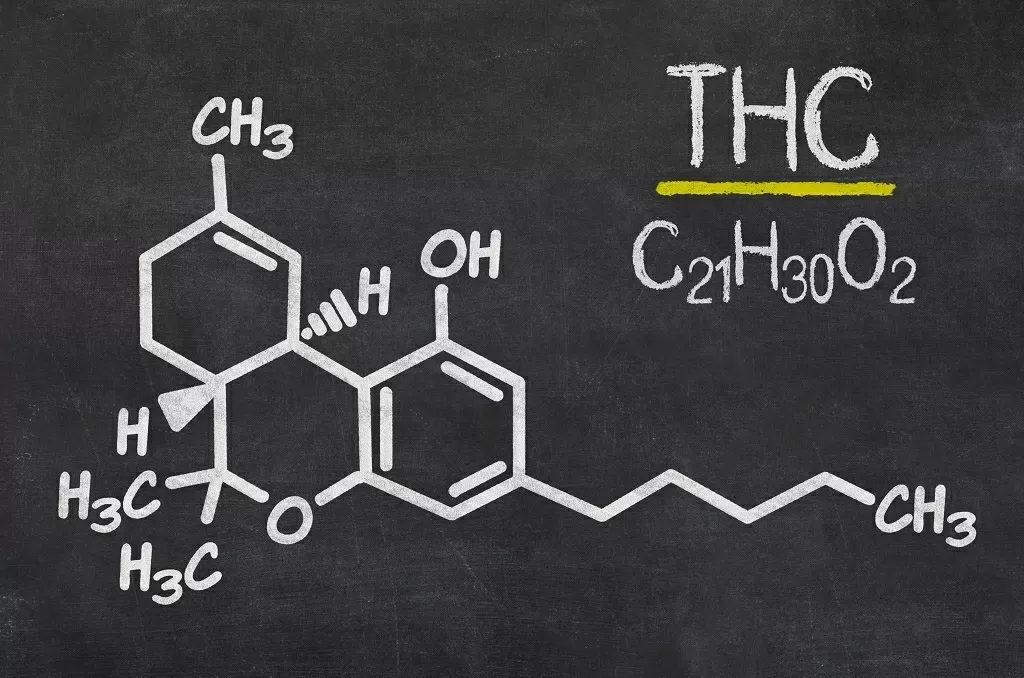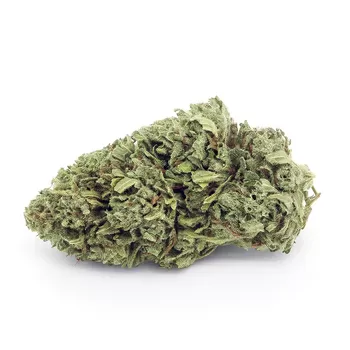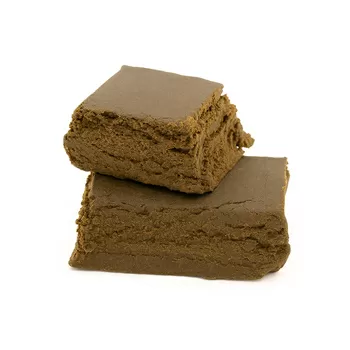In the last few years, there's been excitement about compounds called cannabinoids. Scientists have already identified more than 100 of these compounds. Many of them are active substances in cannabis. The most famous cannabinoid is likely tetrahydrocannabinol, or THC. What is THC, though, and what effects does it have on the body?
The scientific research in this area is still growing. Here’s what’s known so far about THC and its effects on the body.
What Is THC?
To understand THC’s effects on the body, it helps to understand what THC and other cannabinoids are. As mentioned, cannabinoids are a class of compounds including THC, CBD, and more. They’re so named because they were first discovered in the cannabis plant. They also occur in other plants. The human body produces similar compounds known as “endocannabinoids.”
Cannabinoids are what give cannabis its effects. The most abundant and common cannabinoid is THC. You could say it’s responsible for the “high” feeling people experience when they use cannabis. As it turns out, though, THC may be able to do much more than give someone “the munchies” or help them relax.
How Does THC Affect the Body?
As mentioned, the human body produces its own cannabinoid-like compounds. These are endocannabinoids, and the body even has a specialized system for using them. The endocannabinoid system appears to interact with many other body systems, like the immune system.
When a cannabinoid like THC enters the body, it plugs into the endocannabinoid system. There are two major receptors in the system, called CB1 and CB2.
THC has an affinity for CB1. It mimics anandamide, one of the endocannabinoids. When THC binds to CB1, it changes how neurons in the brain communicate with each other. From there, THC can effect many different changes in the body. It seems to affect everything from mood to coordination. You may already know about some of THC’s effects. It has a reputation as an appetite stimulant. That's why stereotypes portray people who use cannabis craving snack foods.
THC also appears to play a role in the body’s sleep-wake system. It may even be able to help you relax. People who use cannabis are often portrayed as being drowsy or prone to falling asleep. Scientific research suggests these stereotypes might not be too far from the truth. Some studies with cancer patients showed THC could reduce nausea and increase appetite. Other studies have shown a link between THC and sleep. Using THC seemed to help people fall asleep. It also helped them stay asleep longer and get better quality rest.
Potential Health Effects of THC

Scientists have also discovered THC has many potential health benefits. One of the best supported in the literature is pain relief. THC and other cannabinoids, like CBD, seem to interact with the immune system. In doing so, they can reduce inflammatory responses. This, in turn, can help relieve pain, swelling, and even redness. Many people say THC can help them get relief from chronic pain. Some studies suggest THC could even be effective for relieving hard-to-treat types of pain, like nerve pain. Research also shows THC could help with other conditions, such as rheumatoid arthritis.
The anti-inflammatory action could even make THC a helpful ingredient in face creams and lotions. It may help redness and swelling associated with conditions like acne or eczema. It may also assist with neurodegenerative conditions, like Parkinson’s and Alzheimer’s. THC may also play a role in reducing seizures in some patients. Of course, the research in this area is still speculative. There aren’t enough studies to draw many definitive conclusions about what THC can and can’t do for human health.
Side Effects of THC
Not all of THC’s potential effects are positive. In fact, the compound typically has some side effects. Immediate side effects include a dry mouth, red eyes, and drowsiness. A reduction in motor skills can make it dangerous to drive or take on other tasks after using THC. In some people, THC can also increase anxiety and paranoia. Thanks to its psychoactive nature, it can sometimes cause hallucinations.
Longer term risks of using THC aren’t well understood. Current research suggests there may be a link between cannabis use and some mental health disorders. Researchers suggest THC could have negative effects for youth with a family history of schizophrenia. It may also increase the risk of depression and suicide in at-risk individuals.
In addition, this active substance has a permanence in the blood after consumption. In fact, most frequent cannabis users wonder how long does cannabis stay in your system and how long it can be detected by drug tests.
Can You Overdose on THC?
Unlike opioids or other pain medications, it’s difficult to truly overdose on THC. It is still possible to take too much. If you do happen to take too much, you may feel quite uncomfortable. If this happens, you can take some CBD.
CBD blocks THC in the body, reducing some of its effects. Unlike THC, CBD is non-intoxicating. How will you know how much THC is too much? The right “dose” of THC is somewhat different for everyone. The best advice is to start with a low dose and slowly increase it.
How Is THC Used?
You can use THC in a number of different forms. Dried cannabis flower usually contains THC. Cannabis oils, resins, and other products also contain THC. To that end, you may be able to take THC by vaping it or by swallowing a capsule. It may also be in edibles or drinks. THC is also found in many topical cannabis products, such as lotions, balms, and salves.
Is THC Legal?
THC often falls under the umbrella of cannabis laws. Laws in Europe tend to vary by country, even when the country in question is a member of the EU.
In Portugal and the Netherlands, cannabis is decriminalized for personal use. French law is quite strict, whereas laws in Spain and Germany allow for more grey area. Some countries, like Italy and the Czech Republic, have legalized medical use only. So, as you can see, THC’s legality really depends on where you are. There is some hope the laws may be changing so, especially as research into the potential benefits of cannabinoids like THC continues.
Find the Right Blend for You
You asked, “What is THC?” and now you should have a clearer picture. This cannabinoid is common in cannabis, and it comes with both its pros and its cons.
Cannabis products often contain both THC and CBD. These cannabinoids can work together to enhance each other’s effects. If you’re unsure about THC, there are plenty of CBD-rich products that can deliver similar effects, without the downsides of THC.
Looking for high-quality CBD or THC products? Check out the weed shop and discover some of the very best products on the market.
 Italiano
Italiano Español
Español English
English Français
Français Deutsch
Deutsch



